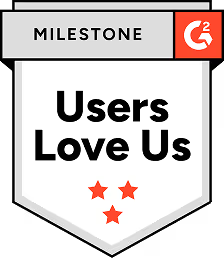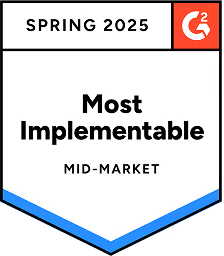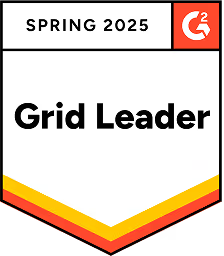AI Sales Assistants: What They Are & How They Help

TL;DR
In a world where time is money, AI sales assistants are the new currency of success. These intelligent tools are shaking up the industry, offering a blend of efficiency and insight that was once the stuff of science fiction. From automating tedious tasks to serving up laser-focused lead recommendations, AI assistants are changing the way we think about selling. But what's the real deal with these digital helpers, and how can they supercharge your sales strategy? In this article, we'll unpack the potential of these digital game-changers and discuss how they can transform your approach to selling.
Key takeaways from the article:
- Versatile task management: AI sales assistants can handle a wide range of tasks, including automated follow-ups, content creation, lead qualification, meeting scheduling, and performance tracking.
- Intelligent integration: These tools work by integrating with existing CRM systems, analyzing vast amounts of data, and using machine learning to continuously optimize performance.
- Boosting sales performance: Benefits of using AI sales assistants include increased efficiency, improved lead quality, enhanced personalization, and data-driven insights to inform sales strategies.
- Implementation hurdles: While powerful, AI sales assistants face challenges such as a learning curve for adoption, dependence on quality data, and potential integration complexities.
- AI Sales Agents - the next frontier: The future of AI in sales is moving towards more autonomous AI sales agents that can handle complex interactions and entire parts of the sales process independently.
In today's fast-paced sales environment, staying ahead of the competition means leveraging every tool at your disposal. Enter AI sales assistants: your new secret weapon for supercharging your sales process.
But what exactly are these digital dynamos, and how can they transform your sales game? Let's dive in and explore this brave new world of AI in sales.
What is an AI sales assistant? What do they do?
AI sales assistants are intelligent AI-powered tools and platforms that are designed to enhance – and, in some cases, even automate – various aspects of the sales process. Using advanced algorithms and machine learning, this technology has an unprecedented ability to make decisions and perform tasks that can immensely raise your team's productivity and output.
Think of them as your own personal sidekick, armed with the power of machine learning to help you work smarter, not harder.
These virtual assistants can tackle a wide range of tasks, including:
- Automated follow-ups and personalized outreach: Say goodbye to generic "just checking in" emails. AI assistants can craft personalized communications that resonate with each prospect, allowing you to maintain engagement with them without overwhelming your schedule. It's like having a clone army of you, but without the creepy sci-fi vibes.
- Content creation for sales collateral: Writer's block? Not anymore. AI sales assistants can streamline your content process by automatically generating personalized content based on customer data, industry trends, and your product information. These tools can quickly whip up brand-approved presentations, proposal drafts, and email templates faster than a caffeinated copywriter – ensuring that your materials are always relevant and up to date.
- Enhancing the customer relationship management process: Because they can learn from previous interactions, AI sales assistants can offer personalized communication for customers, which can help streamline your customer success team’s processes.
- Lead identification and qualification: AI sales assistants act as efficient prospectors, analyzing vast datasets to identify and qualify promising leads. They score and prioritize opportunities, ensuring you focus your efforts on the most valuable prospects.
- Meeting scheduling and calendar management: AI assistants can even streamline the often tedious process of scheduling meetings. They efficiently coordinate between your calendar and your prospects', finding optimal time slots and reducing back-and-forth communications.
- Performance tracking and reporting: These digital scorekeepers can track your wins (and learning opportunities) with the precision of a Swiss watch. They provide clear, actionable insights on your reps' performance, helping you identify areas where they shine, as well as areas for improvement.
- Real-time conversation assistance during calls or chats: Imagine having a knowledgeable assistant providing you with relevant information during your sales conversations. AI assistants offer real-time support, helping you navigate discussions with confidence and expertise.
- Sales forecasting and pipeline management: These digital forecasters analyze your sales pipeline with remarkable accuracy. They provide you with data-driven predictions and insights, helping you manage your pipeline more effectively and forecast with confidence.
Making AI sales assistants a part of your team means they can shoulder many mundane and administrative tasks, leaving your reps free to focus on the parts of selling where they thrive: building relationships and closing deals.
Common use cases for AI sales assistants
While the list of tasks AI sales assistants can handle is impressive, it's essential to understand the specific pain points they address. Here are some common scenarios where these tools truly shine:
- Accelerating the sales cycle by automating routine processes: AI sales assistants can take care of time-consuming tasks like data entry and initial outreach, allowing your sellers to focus on high-value activities that actually close deals.
- Enabling predictive sales analytics: AI sales assistants can look at your existing sales data and forecast likely developments, equipping your team with the knowledge they need about potential trends for greatly enhanced and adaptive strategic planning.
- Enhancing the lead identification and qualification process: These AI-powered platforms can streamline the task of qualifying leads, ensuring that your team’s focusing their efforts on only the most viable prospects.
- Ensuring consistent follow-up and reducing missed opportunities: AI sales assistants act as your tireless follow-up champions, never letting a lead fall by the wayside. They keep your pipeline moving by automating timely touchpoints, ensuring you stay top-of-mind with prospects without burning the midnight oil.
- Fostering team collaboration and knowledge sharing: Think of AI sales assistants as your team's collective brain, capturing and distributing insights across your sales force. They ensure everyone's on the same page, armed with the latest strategies and best practices, without subjecting you to yet another lengthy team meeting.
- Personalizing prospect and customer engagement: Say “goodbye” to 3x3 research! AI sales assistants can sift through tons and tons of data on your prospects and use that information to deliver personalized content to your prospects and customers. In turn, this level of personalization can improve conversion rates and enhance your customers’ experience.
- Providing data-driven insights to inform sales strategies and decision-making: These tools provide detailed insights through their abilities to analyze vast amounts of data, enabling every member of your team to make more informed and strategic decisions.
{{cta-1}}
How do AI sales assistants work?
AI sales assistants leverage advanced technologies to enhance various aspects of the sales process. Here's a deeper dive into how these digital helpers work:
- Data integration and analysis: AI sales assistants connect with existing CRM systems and sales tools to gather and analyze tons of customer data. They then identify patterns and trends in sales history, providing valuable insights to reps to use in their interactions with prospects.
- Machine learning: These assistants continuously improve their performance through experience. They adapt to your specific sales processes and strategies, refining their recommendations based on successful outcomes.
- Natural language processing (NLP): NLP enables AI assistants to understand and generate human-like text. They can analyze conversation sentiment and context, providing deeper insights into customer communications.
- Predictive analytics: AI sales assistants can use historical data to forecast future sales trends and outcomes. They also can identify high-potential leads and opportunities, and suggest optimal times for follow-ups and outreach.
- Automation of routine tasks: These digital helpers handle repetitive processes like data entry and initial outreach. They can schedule meetings, manage calendars, and generate personalized content for emails and presentations, freeing up your reps' time for more strategic activities.
- Real-time assistance: During sales calls, AI assistants can provide on-the-fly information to your reps. They offer suggestions for handling objections and recommend relevant content or product information, enhancing the quality of customer interactions.
- Performance tracking: AI sales assistants monitor individual and team sales metrics, generating detailed reports and dashboards. They identify areas for improvement and training, helping your team continually enhance their performance.
It’s important to remember that these AI-powered sidekicks are designed to work alongside your human sellers, not replace them. They're like having a tireless, data-crunching genius on your team, ready to support your reps 24/7 in their pursuit of hitting those targets and smashing those quotas.
By taking care of the data-heavy lifting and time-consuming admin work, AI sales assistants free up your reps to focus on what they do best: building relationships, understanding customer needs, and closing deals.
Remember, while these digital helpers are impressively smart, they're not mind readers (yet!). The key to getting the most out of your AI sales assistant is to provide quality data input, regularly review and refine its performance, and use its insights to inform your sales strategies.
What are some examples of AI sales assistants?
As you can imagine, AI sales assistants come in a ton of different “flavors,” but we’ve provided examples of some of the most common types of AI sales assistants that are used by sales teams:
Buyer intent intelligence
- 6sense: This platform excels at all things buyer intent data. Specifically, it can capture and interpret buying signals from across the web that can provide insights into prospects' research activities and interests; it can also identify anonymous web visitors and match them to target accounts.
Conversation intelligence
- Gong.io: Gong.io uses AI to analyze sales conversations across phone, video, and email interactions. It automatically captures, transcribes, and analyzes these interactions to provide insights into customer behavior, sales team performance, and market trends.
Data provider & enrichment
- ZoomInfo Sales: This platform uses AI to gather and enrich contact data, enabling sellers to find and connect with the right people. It also provides insights into a prospect’s background and interests, allowing for more personalized outreach.
Inbound & outbound prospecting
- Regie.ai Co-Pilot: (Of course we’d have to include our product somewhere in this article! ) Our Co-Pilot product handles all the repetitive and mundane parts of the prospect research process for you; and – with these relevant data points – the platform can also produce sales-ready, brand-approved email and LinkedIn messages in a minute or less.
- Bonus “shameless” plug: Our Auto-Pilot product takes the “AI sales assistant” technology 100 steps further by giving you access to fully autonomous AI Sales Agents who can automate the entire prospecting process for you.
Parallel dialing
- Orum: Orum uses AI to simultaneously dial multiple numbers for each prospect, significantly reducing the time spent navigating through gatekeepers, voicemails, and busy signals.
Personalized content generation
- Jasper: Jasper is an AI-powered content creation platform; it uses advanced language models to produce various types of text, including blog posts, social media content, ad copy, and product descriptions, based on user inputs and prompts.
Sales engagement
- Outreach.io: Outreach.io provides tools for sellers to manage static email sequences, phone calls, and social touches, while using AI to optimize outreach timing and content.
Virtual assistants
- X.ai: X.ai’s virtual assistants use AI to schedule meetings and manage calendars. They can automatically find times that work for both the salesperson and the prospect.
{{cta-1}}
What are the benefits of using AI sales assistants?
As you can see, AI sales assistants offer sellers the opportunity to supercharge almost every aspect of their workflow, blending efficiency, accuracy, and a level of personalization that can be extremely difficult to achieve just on our own – and especially at scale. Depending on the kind of AI sales assistant you decide to use – based on your needs and use cases – these are some of the key benefits you can expect to get:
- Increased efficiency: By automating routine tasks, AI assistants free up your sellers’ time to focus on high-value activities like building relationships.
- Improved lead quality: AI-powered lead scoring and qualification help you focus on the most promising prospects, increasing your conversion rates.
- Enhanced personalization: These tools can analyze tons of data to provide personalized recommendations for each prospect, improving engagement and response rates.
- Data-driven insights: AI assistants can uncover patterns and trends in your sales data that might be invisible to the human eye, informing better strategic decisions.
- Consistent follow-up: AI assistants can help your team ensure timely and consistent follow-up with every prospect so you never have to leave a lead behind again.
- Accelerated sales cycle: By streamlining processes and providing real-time assistance, AI can help you move deals through the pipeline faster.
- Improved forecasting: AI-powered predictive analytics can provide more accurate sales forecasts, helping you plan more effectively.
- 24/7 availability: Unlike human sales reps, AI assistants can work around the clock, engaging leads and providing support at any time.
What are the challenges of using AI sales assistants?
While AI sales assistants can offer significant benefits, adopting and implementing them into your sales process can present a few hurdles. Here are a few key challenges of leveraging AI sales assistants:
- Learning curve: Implementing new technology always comes with a learning period. Your team may need time to adapt to working alongside AI assistants.
- Dependence on quality data: AI sales assistants rely heavily on data. If the input data is incorrect or biased, the assistant’s outputs and recommendations will be, too.
- Less personal touch: Though AI assists in personalization to some extent, it can’t fully replicate the human touch and intuition that come with years of sales experience.
- Integration complexities: Ensuring smooth integration with existing systems and workflows can be technically challenging.
- Lack of contextual understanding: While improving rapidly, AI can still struggle with nuanced communication and complex, context-dependent decisions.
AI Sales Agents: The next frontier for AI sales assistants
As impressive as current AI sales assistants are, the future holds even more exciting possibilities. Enter AI Sales Agents: the next evolution in AI-powered sales technology.
Unlike traditional AI sales assistants that primarily support human salespeople, AI Sales Agents – such as our Auto-Pilot AI Agents – are designed to operate more autonomously. They can engage in more complex interactions, make nuanced decisions, and even handle entire parts of the sales process independently.
Imagine an AI-powered Agent that can identify and qualify leads, create dynamic sequences and touches based on prospects’ past behaviors, and conduct outreach 100% autonomously – and all while learning and improving from each interaction. (And these use cases only represent a small fraction of the kinds of capabilities that Agents can handle.) These advanced AI Agents promise to take the concept of sales automation to entirely new levels, potentially revolutionizing how sales teams operate.
While still in the early stages, AI Sales Agents like Auto-Pilot represent the cutting edge of sales technology. They have the potential to dramatically increase scalability, allowing sales teams to tap into wider pools of prospects than ever before without sacrificing personalization or quality of interaction.
Final thoughts
AI sales assistants are more than just a trendy tech buzzword – they're powerful tools that can transform your sales process. By automating routine tasks, providing data-driven insights, and enhancing personalization, these digital sidekicks can help you work smarter and close more deals.
However, it's crucial to remember that AI is a tool to enhance your team’s skills, not replace them. The most successful sellers will be those who learn to effectively collaborate with AI, combining the efficiency and insights of artificial intelligence with the relationship-building skills and emotional intelligence that only humans can provide.
Want to see how AI sales assistants and autonomous Agents work together to transform prospecting?
Check out our latest Auto-Pilot product!
Want to take your prospecting to the next level?
Book a demo to see our AI Sales Agents in action!
FAQs
Read more posts
View all BlogsNeed more help?
If you still have questions, make sure to check out our Help Center: there, you'll find all the tips & advice you'll need to get your team up & running with Regie.ai.









